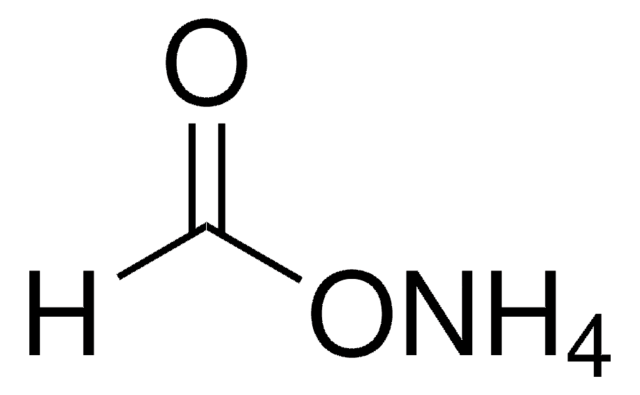ABS2090
Anti-ICDH
serum, from rabbit
Sinonimo/i:
Isocitrate dehydrogenase, ICDH (NADP), IDH
About This Item
Prodotti consigliati
Origine biologica
rabbit
Livello qualitativo
Forma dell’anticorpo
serum
Tipo di anticorpo
primary antibodies
Clone
polyclonal
Reattività contro le specie
E. coli, Legionella pneumophila
Confezionamento
antibody small pack of 25 μL
tecniche
western blot: suitable
Isotipo
IgG
N° accesso Genebanck
Condizioni di spedizione
ambient
modifica post-traduzionali bersaglio
unmodified
Descrizione generale
Specificità
Immunogeno
Applicazioni
Signaling
Western Blotting Analysis: A representative lot detected ICDH in E. Coli cell lysate (Xu, L., et. al. (2010). PLoS Pathog. 6(3):e1000822; Lu, C., et. al. (2016). Sci Signal. 9(412):ra11).
Qualità
Western Blotting Analysis: A 1:10,000 dilution of this antibody detected ICDH in 20 µL E.Coli cell lysate.
Descrizione del bersaglio
Stato fisico
Stoccaggio e stabilità
Altre note
Note legali
Esclusione di responsabilità
Non trovi il prodotto giusto?
Prova il nostro Motore di ricerca dei prodotti.
Codice della classe di stoccaggio
12 - Non Combustible Liquids
Classe di pericolosità dell'acqua (WGK)
WGK 1
Punto d’infiammabilità (°F)
Not applicable
Punto d’infiammabilità (°C)
Not applicable
Certificati d'analisi (COA)
Cerca il Certificati d'analisi (COA) digitando il numero di lotto/batch corrispondente. I numeri di lotto o di batch sono stampati sull'etichetta dei prodotti dopo la parola ‘Lotto’ o ‘Batch’.
Possiedi già questo prodotto?
I documenti relativi ai prodotti acquistati recentemente sono disponibili nell’Archivio dei documenti.
Il team dei nostri ricercatori vanta grande esperienza in tutte le aree della ricerca quali Life Science, scienza dei materiali, sintesi chimica, cromatografia, discipline analitiche, ecc..
Contatta l'Assistenza Tecnica.







